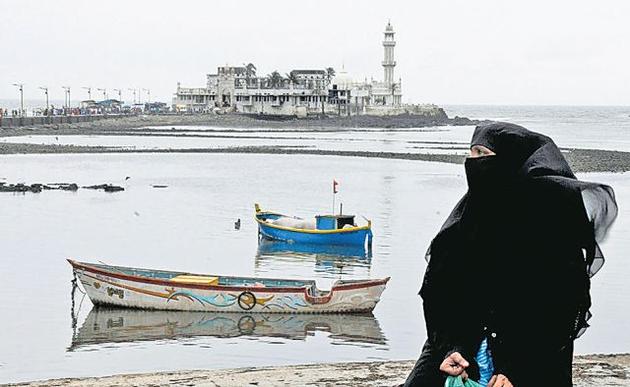The History of Independent India has seen a fortunate pattern of Hinduism being made subject to comprehensive reform through constitutional, legislative and such related mechanisms without any involvement whatsoever of those representing the above said religion. On the other hand, the media houses and the political outfits were seen giving a leeway to the social and patriarchal ills prevalent in Islam and no legislative action was taken against it. In fact the Legislature was instrumental in blocking an effort of heralding reforms in the Muslim Personal laws by passing a retaliatory act to the Shah Bano Judgment.
The judgment passed by the Hon’ble Bombay High Court allowing Muslim women to enter the Haji Ali Dargah sanctum is a much awaited judicial step hinting at the beginning of much needed reforms in Islam thereby ending the patriarchal nature of the Muslim Society.
Here we list down reasons as to why the judgment of the Hon’ble High Court is a corroboration of the Constitutional values and why the reasons of not allowing women given by the respondent trust seem to be a farce and a testimony of patriarchal notions ingrained in the said religious trust.
Constitutional values:
It is true that Article 25 (2) (b) which allows the State to interfere in religious activities and throwing open of all religious institutions of a public character to all classes and sections of society applies only to the Hindus and not to the non-Hindu religions. It is also true that Article 26 allows a religious denomination to manage its own religious affairs but as rightly observed by the High Court the respondent trust being a public charitable trust and its objects being purely secular activities such as giving of loans, education, etc. had taken the decision of disallowing women to enter the Haji Ali Dargah without the authority of law.
Keeping the aforementioned factors in mind the rights of the petitioner (co-founders of the Bhartiya Muslim Mahila Andolan) were definitely violated. First of all, the fact that they were being unfairly treated in a detrimental manner compared to their male counterparts constituted a violation of Article 14 of the Constitution of India. Moreover, as observed by the Hon’ble High Court the rights of the petitioner to Freedom of conscience and practice of religion under Article 25 of the Constitution have also been violated. Apart from this, Article 15 of the Constitution which prohibits discrimination on grounds of religion, race, caste, creed, place of birth and sex has also been clearly violated.
Thus, the High Court has given an accurate judgment where the dispute was between a party which was claiming certain Fundamental Rights and another party which had taken an unconstitutional decision and that too without the authority of the law of the land.
Misogynist and absurd contentions of the Haji Ali Dargah Trust:
In order to defend the arbitrary rule the respondent trust raised a couple of contentions. The first contention was that allowing both men and women in the Haji Ali Dargah would make it a hotbed for sexual harassment. So the trust by necessary implication suggested that the fact that there are certain elements which could commit such an abashing act the only solution is to punish the prospective victim. The trust could envisage that such acts would spoil the sanctity of the Haji Ali Dargah but they did not even consider that allowing such prospective harassers is in itself spoiling the sanctity of the Haji Ali Dargah. This contention was aptly rejected by the High Court and it was rightly suggested that separate queues for men and women can always be used for preventing such incidents.
The Haji Ali Dargah had also contended last year that “allowing women in vicinity of a male saint is a grievous sin.” One then fails to understand how every other Dargah in India is able to allow women to enter if the same act is such a grievous sin in Islam. Whether or not allowing women would have constituted an Islamic sin, it is for sure that the continuance of this 4 year old custom formulated unwarrantedly by the respondent trust constituted the most grievous of Constitutional sin and the Hon’ble High Court made sure that the same wasn’t given a judicial sanction.
